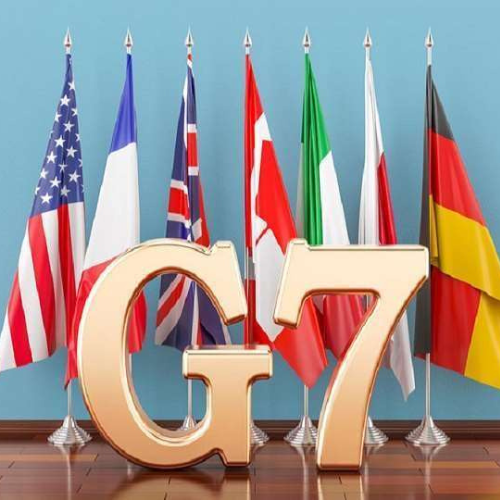The ongoing war in Ukraine continues to send shockwaves across the globe, with powerful nations racing to address the far-reaching impacts of the conflict. The G7 group of countries, which includes Canada, France, Germany, Italy, Japan, the United Kingdom, and the United States, is now sharpening its focus on China. The concern? China’s indirect support for Russia, which is prolonging the devastating war. This week, G7 foreign ministers are gathering to discuss ways to put more pressure on Beijing, as worries grow about China’s role in helping Russia sustain its military and economy during the conflict.
G7’s New Sanctions Target Russia’s Hidden Oil Trade
One of the main topics on the G7’s agenda is to introduce new sanctions aimed at disrupting Russia’s “shadow fleet.” This refers to a network of ships that Russia reportedly uses to secretly move its oil around the world, avoiding existing price caps and restrictions. These actions help Moscow keep its economy afloat, despite the wide-ranging sanctions already imposed by Western countries.
The G7 wants to close these loopholes, ensuring that Russia can no longer use these secretive tactics to sell its oil. By doing so, they hope to cut off a vital source of funding that the Kremlin uses to continue its war in Ukraine.
What’s raising eyebrows even more is China’s involvement in this complicated web. There are concerns that China has been providing Russia with goods that can be used for both civilian and military purposes. While Beijing denies directly supporting Moscow’s war efforts, reports suggest that Chinese companies might be sending equipment such as drones and other technology that can aid Russia on the battlefield.
China’s Role in Military Supplies Raises Alarm
Recent reports have also highlighted potential military ties between Chinese and Russian companies. For example, experts believe that some drones being used in the war by Russia are based on designs similar to those from Iran. There are now allegations that China and Russia may be working together to build even more military-grade drones.
This has alarmed many Western officials, who worry that such actions could escalate the conflict further. If proven, these allegations could lead to severe consequences for China, as nations like the U.S. and its allies prepare to push back against any country aiding Russia’s war machine.
Africa Emerges as Diamond Power Amidst G7 Sanctions on Russia
Adding to the complexity, the European Union (EU) is also discussing potential sanctions on China. The EU claims it has evidence that some Chinese companies have shipped weapons to Russia. While these allegations are still being reviewed, they could lead to measures like weapon embargos or other restrictions on Chinese trade.
Ripple Effects on Global Energy Markets
The war has also had a huge impact on global energy markets. Since the conflict began, the price of oil and gas has been swinging wildly. Some days, prices spike due to fears of supply shortages; on other days, they plunge as new sanctions or peace talks seem likely. This volatility is keeping businesses and governments around the world on edge.
Russia’s isolation has also created new economic challenges for its closest ally, China. The two countries are working on big projects, like the Power of Siberia 2 pipeline, which aims to send natural gas from Russia to China. However, as Russia grows more dependent on China for economic survival, some experts believe the balance of power in this relationship is shifting.
Meanwhile, Western countries continue to provide military aid to Ukraine, including advanced weapons and equipment. Recently, the United Kingdom supplied Storm Shadow missiles to Ukraine, demonstrating its commitment to supporting the country in defending itself against Russian attacks. Other allies, like the U.S., have also stepped up with military assistance, further highlighting the stark divide between those supporting Ukraine and those indirectly helping Russia.
A Complex Web of Global Reactions
As the war rages on, the G7 is also keeping a close eye on other countries that could influence the conflict. For instance, there have been concerns about North Korea potentially sending troops or supplies to aid Russia, though no solid evidence of this has emerged yet.
The economic and political ripples of the war are being felt far beyond Europe. Nations around the world are rethinking their dependence on Russian oil and gas, seeking alternative energy sources to ensure stability. At the same time, sanctions on Russian commodities are intensifying, creating even more challenges for global trade.
As G7 leaders work to hold both Russia and its allies accountable, the world watches closely. This moment in history underscores how deeply interconnected global markets and alliances have become—and how fragile those connections can be in times of conflict.


